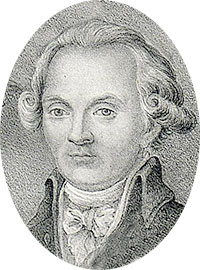|
Dance Permit
Dance permit is a permit required for dancing. Dance permit in Sweden Since the 1930s a dance permit (''danstillstånd'') is required for public dance events in Sweden per the law of order (2 kap. 4 § ordningslagen 1993:1617). Filing for a dance permit is associated with a fee of 700 SEK (2014) for the establishment. Establishment lacking such permit must prevent guests from dancing, for example by stopping the music. The police may take photographs and films of patrons moving in sync with the music in a dance like way. These photos and films may later be used as evidence of a crime if the establishment is lacking the required permit. Proponents of the law, among them the swedish police, highlighted the security aspect. In 2016, the Riksdag The Riksdag ( , ; also or , ) is the parliament and the parliamentary sovereignty, supreme decision-making body of the Kingdom of Sweden. Since 1971, the Riksdag has been a unicameral parliament with 349 members (), elected propo ... [...More Info...] [...Related Items...] OR: [Wikipedia] [Google] [Baidu] |
Riksdag
The Riksdag ( , ; also or , ) is the parliament and the parliamentary sovereignty, supreme decision-making body of the Kingdom of Sweden. Since 1971, the Riksdag has been a unicameral parliament with 349 members (), elected proportional representation, proportionally and serving, since 1994, fixed four-year terms. The 2022 Swedish general election is the most recent general election. The constitutional mandates of the Riksdag are enumerated in the ''Basic Laws of Sweden#Instrument of Government, Instrument of Government'' (), and its internal workings are specified in greater detail in the Riksdag Act ().Instrument of Government as of 2012. Retrieved on 16 November 2012. [...More Info...] [...Related Items...] OR: [Wikipedia] [Google] [Baidu] |
Swedish Police
The Swedish Police Authority () is the national police, police force (''Polisen'') of Sweden. The first modern police force in Sweden was established in the mid-19th century, and the police remained in effect under Municipalities of Sweden, local government control up until 1965, when it was nationalized and became increasingly centralized, to finally organize under one authority January 1, 2015. Concurrent with this change, the Swedish Security Service formed its own agency. The new authority was created to address shortcomings in the division of duties and responsibilities, and to make it easier for the Government to demand greater accountability. The agency is organized into seven police regions and eight national departments. It is one of the largest government agencies in Sweden, with more than 28,500 employees, of which police officers accounted for approximately 75 percent of the personnel in 2014. It takes two and a half years to become a police officer in Sweden, including ... [...More Info...] [...Related Items...] OR: [Wikipedia] [Google] [Baidu] |
Sveriges Television
Sveriges Television AB ("Sweden's Television aktiebolag, Stock Company"), shortened to SVT (), is the Sweden, Swedish national public broadcasting, public television broadcaster, funded by a public service tax on personal income set by the Riksdag (national parliament). Prior to 2019, SVT was funded by a Television licensing in Sweden, television licence fee payable by all owners of television sets. The Swedish public broadcasting system is largely modelled after the system used in the United Kingdom, and Sveriges Television shares many traits with its British counterpart, the BBC. SVT is a public limited company that can be described as a "quasi-autonomous non-governmental organisation." Together with the other two public broadcasters, Sveriges Radio and Sveriges Utbildningsradio, it is owned by an independent foundation, ''Foundation Management for SR, SVT, and UR, Förvaltningsstiftelsen för Sveriges Radio AB, Sveriges Television AB och Sveriges Utbildningsradio AB''. The fou ... [...More Info...] [...Related Items...] OR: [Wikipedia] [Google] [Baidu] |
Dancing Ban
Dancing bans are legal or religious prohibitions against dancing, which have been applied at various times in various jurisdictions around the world. This article deals with general bans on recreational and artistic dancing, as opposed to bans on erotic forms of dancing such as lap dancing and topless dancing, which have been more common. Legal bans ''Tanzverbot'' is the German term for "dancing ban". In Germany and Switzerland, dancing on some holidays is banned by most state or canton governments. These occasions are certain Christian and secular holidays aimed at mourning or contemplation, such as Good Friday, All Saints' Day (from its association with All Souls' Day practices) or memorial days like Volkstrauertag. The German and Swiss dancing bans prohibit public parties, but not dancing in one's private residence. Until 1999, an ordinance in Pound, Virginia required that dance hall permits not be granted "to anyone who is not a proper person, nor to a person who is not a pe ... [...More Info...] [...Related Items...] OR: [Wikipedia] [Google] [Baidu] |
Dance In Sweden
Dance is an art form, consisting of sequences of body movements with aesthetic and often symbolic value, either improvised or purposefully selected. Dance can be categorized and described by its choreography, by its repertoire of movements or by its historical period or place of origin. Dance is typically performed with musical accompaniment, and sometimes with the dancer simultaneously using a musical instrument themselves. Two common types of group dance are theatrical and participatory dance. Both types of dance may have special functions, whether social, ceremonial, competitive, erotic, martial, sacred or liturgical. Dance is not solely restricted to performance, as dance is used as a form of exercise and occasionally training for other sports and activities. Dance performances and dancing competitions are found across the world exhibiting various different styles and standards. Dance may also be participated in alone as a form of exercise or self expression. Dancing is ... [...More Info...] [...Related Items...] OR: [Wikipedia] [Google] [Baidu] |



